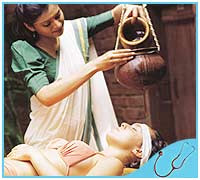Medical tourism in Israel is a subset of the medical tourism industry, in which patients travel to other countries to have procedures performed at a lower cost. Israel has emerged as a medical tourism destination due to the many advantages it offers, including first rate quality o f care. Israel’s facilities are recognized throughout the world, with regular contacts maintained on a reciprocal basis with major medical and scientific research centers abroad. Israel is frequently the host venue for international conferences on a wide variety of medical topics.
f care. Israel’s facilities are recognized throughout the world, with regular contacts maintained on a reciprocal basis with major medical and scientific research centers abroad. Israel is frequently the host venue for international conferences on a wide variety of medical topics.
In recent years, thousands of visitors have come to Israel to undergo medical procedures. In 2006, 15,000 foreigners traveled to Israel for procedures, bringing in $40 million in revenue for the country. This includes money spent on the procedures themselves, as well as on accommodations, sightseeing and shopping.
Patients from all over the world are going to Israel for procedures, from countries such as France and Germany in Europe, and Middle Eastern countries such as Jordan, Pakistan, Iran and Iraq.
While not one of the world’s leaders in medical tourism, an increasing number of people travel to Israel each year for cost-effective medical treatment. The country has many world-class travel destinations, with more people choosing to take advantage of cheap medical care here before or after a leisurely holiday.
Israel has a number of leading medical institutions as well as a professional medical infrastructure, attracting patients from neighboring Middle Eastern countries where healthcare may not be up to the same standards. High technology and medical equipment in the larger cities means most medical procedures can be carried out, making traveling to Israel a convenient option for some.
Additionally, waiting times are often shorter than in neighboring counties and some procedures are cheaper. Popular treatments sought include heart surgery and knee and hip replacements as well as less serious procedures including dental work and cosmetic surgery. Additionally, leading institutions such as Tel Aviv Medical Center offer everything from neurosurgery to organ transplants.
While the quality of care and medical expertise is up to international standards in Israel, the safety of some destinations is questionable due to political tensions. This makes choosing the location of the hospital where you will receive treatment important. Many Middle Eastern patients prefer not to travel to the US or the UK for political reasons, making Israel a viable medical tourism destination.
You should allow ample time for recovery after your surgery before you travel back home. Be prepared to stay longer when advised by your doctor. In some other cases, you may not need to stay for as long as was expected.
Medical tourism carries some risks that local medical procedures do not have. If complications do arise, patients might not be covered by insurance or be able to seek compensation via malpractice lawsuits. New insurance products are available that do protect the patient should a medical malpractice occur overseas. Some Medical Tourism destinations provide some form of legal remedies for medical malpractice. However, this legal venture is unappealing to the medical tourist. Advocates of medical tourism advise prospective tourists to evaluate the unlikely legal challenges against the benefits of such a trip before undergoing any surgery abroad.
Some countries, such as India, Malaysia, Costa Rica, or Thailand have different infectious diseases than Europe and North America, and different strains of the same diseases compared to nations such as the U.S., Canada, and the UK. Exposure to disease without having built up natural immunity can be a hazard for weakened individ uals, specifically for gastrointestinal diseases (e.g Hepatitis A, amoebic dysentery, paratyphoid) which could weaken progress, also mosquito-transmitted diseases, influenza, and tuberculosis (e.g., 75% of South Africans have latent TB).Israel has become a centre for people seeking specialised treatment who want high levels of expertise and substantially reduced costs. Firstly, the therapeutic benefits of the Dead Sea mean that many international medical tourists travel there every year. There are three categories of patients that seek treatment at the Dead Sea; those with dermatological conditions, those with rheumatological diseases and those with lung diseases. Treatments are based on a mixture of factors that are unique to the Dead Sea; mineral salts, Dead Sea mud, the oxygen rich atmosphere and the mineral sulphur springs of the region as well as the attenuated ultra-violet radiation.Medical centres and hospitals offer treatment to overseas patients and have multi-lingual staff in order to be able to communicate with overseas patients.
uals, specifically for gastrointestinal diseases (e.g Hepatitis A, amoebic dysentery, paratyphoid) which could weaken progress, also mosquito-transmitted diseases, influenza, and tuberculosis (e.g., 75% of South Africans have latent TB).Israel has become a centre for people seeking specialised treatment who want high levels of expertise and substantially reduced costs. Firstly, the therapeutic benefits of the Dead Sea mean that many international medical tourists travel there every year. There are three categories of patients that seek treatment at the Dead Sea; those with dermatological conditions, those with rheumatological diseases and those with lung diseases. Treatments are based on a mixture of factors that are unique to the Dead Sea; mineral salts, Dead Sea mud, the oxygen rich atmosphere and the mineral sulphur springs of the region as well as the attenuated ultra-violet radiation.Medical centres and hospitals offer treatment to overseas patients and have multi-lingual staff in order to be able to communicate with overseas patients.
 f care.
f care.  uals, specifically for gastrointestinal diseases (e.g Hepatitis A, amoebic dysentery, paratyphoid) which could weaken progress, also mosquito-transmitted diseases, influenza, and tuberculosis (e.g., 75% of South Africans have latent TB).
uals, specifically for gastrointestinal diseases (e.g Hepatitis A, amoebic dysentery, paratyphoid) which could weaken progress, also mosquito-transmitted diseases, influenza, and tuberculosis (e.g., 75% of South Africans have latent TB).




